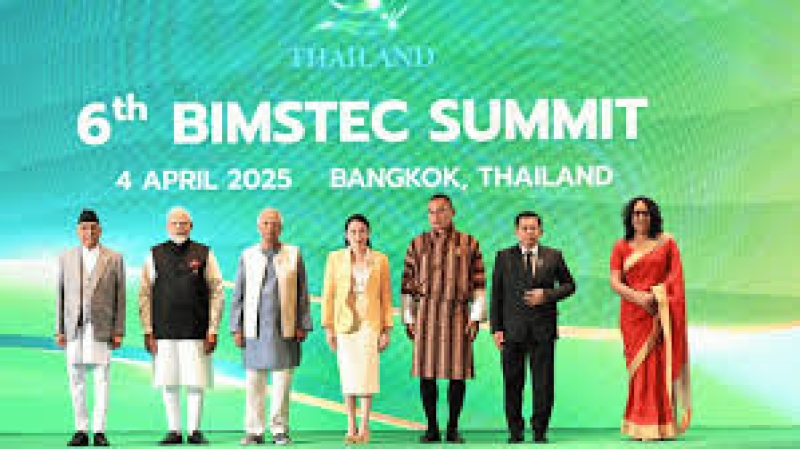- Puppet show enchants Children as Boi Mela comes alive on day 2 |
- DSCC Admin Salam’s drive to make South Dhaka a ‘clean city’ |
- 274 Taliban Dead, 55 Pakistan Troops Killed |
- Now 'open war' with Afghanistan after latest strikes |
- Dhaka's air quality fourth worst in world on Friday morning |
CA Assures BIMSTEC Leaders of Free, Fair, and Participatory Elections

Chief Adviser Prof. Muhammad Yunus reaffirmed on Friday that holding a free, fair, and participatory national election as soon as possible is the top priority of Bangladesh's interim government.
“I have assured our people that, once our mandate is fulfilled, including necessary reforms, we will hold a free and fair election,” he stated during his speech at the BIMSTEC Summit.
Dr. Yunus emphasized the government’s commitment to ensuring the constitutional rights of all citizens, including women and minorities, as Bangladesh works toward rebuilding the nation. He also highlighted the government's dedication to economic stability, good governance, combating corruption, and creating a more orderly economy as part of planned reforms.
“We are undertaking far-reaching reforms to restore stability and growth,” he said. The interim government has established six Commissions focused on reforms in key areas: the judiciary, electoral system, public administration, police, the anti-corruption office, and the constitution. These Commissions have already submitted their recommendations, which are under active review by the government.
To further ensure the success of the reform process, a seven-member "Jatiya Oaikyamot (Consensus) Commission" has been formed, led by Dr. Yunus and comprising the heads of the six Commissions, to adopt these recommendations.
Dr. Yunus also mentioned the recent formation of four additional Commissions focused on media, health, labor, and women's rights.
Reflecting on Bangladesh’s past, Dr. Yunus recalled the sacrifices of ordinary people during the 1971 Liberation War, and the aspiration for a just and inclusive society. However, he noted that in the last 15 years, many citizens, especially the youth, had seen their rights eroded, and state institutions weakened.
“The people rose up to end the brutal authoritarian regime, at the cost of nearly 2,000 innocent lives, mostly youths, including 118 children,” Dr. Yunus said. He described this moment as a "re-birth" in Bangladesh’s history.
He further explained how student leaders, who helped end the autocratic regime, asked him to lead the country during this critical time, a responsibility he accepted "for the sake of our people."
In his speech, Dr. Yunus also extended heartfelt condolences to the governments and people of Thailand and Myanmar, following the recent devastating earthquake that caused significant loss of life and property. “Bangladesh stands in solidarity with our brothers and sisters from Thailand and Myanmar during this difficult time,” he said.
Dr. Yunus also expressed appreciation to the Thai government for its leadership in advancing the BIMSTEC process since its inception in 1997 and to BIMSTEC Secretary General Indra Mani Pandey for his leadership at the BIMSTEC Secretariat.

